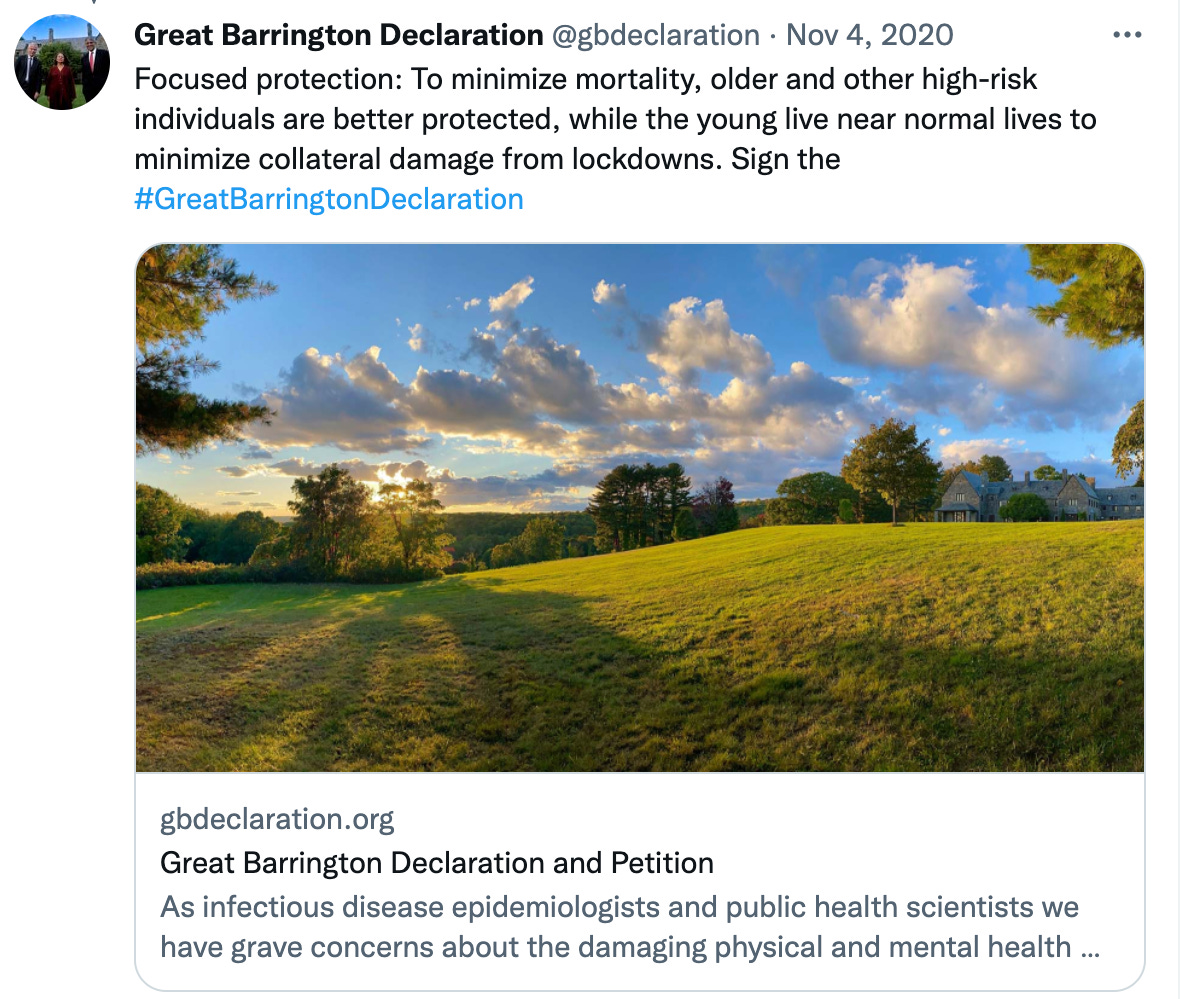HANCOCK ALL HUBRIS... IT WAS OBVIOUS LOCKDOWNS WOULD KILL
Professor Sunetra Gupta vilifies former Health Secretary and calls for an end to "abhorrent" social media abuse
By Oliver May
LEADING epidemiologist Professor Sunetra Gupta accused former Health Secretary Matt Hancock of “hubris” for insisting lockdowns were ‘necessary’ saying it was obvious from the start they would kill poor people.
Gupta, a professor of theoretical epidemiology at the Department of Zoology at University of Oxford, has also called on official bodies to clamp down on what she described as “abhorrent behaviour”, after she and her fellow authors of the Great Barrington Declaration, Martin Kulldorff and Jay Bhattacharya, were shut down and smeared by academics.
Professor Gupta was interviewed on GB News on Monday night in response to an earlier interview on the channel with Hancock, who had said: “The critical point about lockdown is that is was necessary until the vaccine could make us safe. The forecasts for increased cases and increased deaths... the problem wasn’t the forecasts, the problem was that the forecasts were coming true. We could see that the cost of inaction was going to be absolutely enormous.”
Asked if there really was no alternative to locking down the country, Professor Gupta said: “That is pure hubris on his [Hancock’s] part.
“What we didn’t know two years ago is the extent to which lockdown would actually work to slow the spread of Covid. We had several things we didn’t know.
But one thing we did know is that lockdowns would cause a lot of harm and today we are looking at, I have the figures here, a quarter of a million more people will be plunged into extreme poverty. So those are the things we knew.
“What we didn’t know was whether lockdowns would have any effect on Covid infections. Two years later, we do know and the reason we do know is that the models which incorporated that assumption have failed to predict what would happen when restrictions were released. That indicates that that assumption was incorrect. In other words what we saw in terms of the course of the pandemic was hardly effected by lockdowns.
“Lockdowns did have an effect on endemic diseases and we are seeing some of those effects now, some of which are quite unfortunate. But as far as Covid goes I don’t think there’s much evidence... I would say that there is evidence now that the lockdowns did very little to stop the spread of infection and because we didn’t institute a focused protection of those who are vulnerable it did very little to stop the deaths of those unfortunate people.”
Professor Gupta went on to say that so basic was the scientific argument over infectious diseases that they teach it to their undergraduates.
And there are now reports that children are suffering a rise in hepatitis because their immune systems were not exposed to endemic diseases due to repeated lockdowns.
She said: “What is really unfortunate is that lockdowns would have a disproportionate effect on the endemic diseases, so those are the ones that disappeared. But because epidemic diseases they have a lot of catching up to do in terms of getting enough people immune so their spread is restricted, lockdowns actually do very little to stop that process.
“What they do do is that they knock out the endemic diseases and then you have problems because – and this is something we teach our undergraduates – when you delay the age at which you first get infected you often have more severe symptoms, so I’m not saying it’s absolutely confirmed but this hepatitis example is a very plausible explanation for why we are seeing this and we should treat it as a warning, as another negative consequence.
“But let’s face it there were other consequences that were obvious and we were watching them unfold in front of us. Some of these things are little bit more complex and require us to understand endemic disease and all that nonsense but really at the end of the day the fact that lockdowns would kill poor people was I think pretty obvious at the start.”
Professor Gupta did not display any hubris, despite it being clear the plan of the Great Barrington Declaration was largely correct, despite being widely criticised by Government officials and many others.
She said: “The truth is not so much whether we were right or wrong or what would actually unfold, it’s that we were shut down. There is no pleasure to be taken in accepting or saying that we were in the main correct. There is nothing to be gained from that. It’s just really unfortunate that we were shut down.
“And what’s also horrific is the tone, the lack of etiquette, that continues to prevail, particularly the social media, among academics.
“I think it’s high time the universities and the Royal Society took measures to doctor some sort of policy that stopped people from engaging in this absolutely abhorrent behaviour.”








